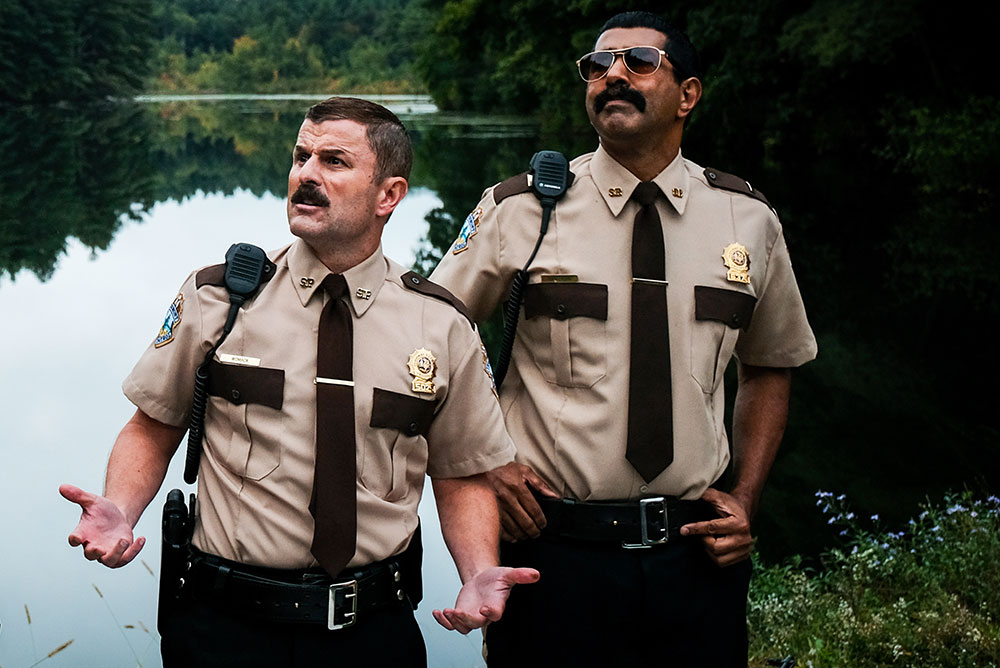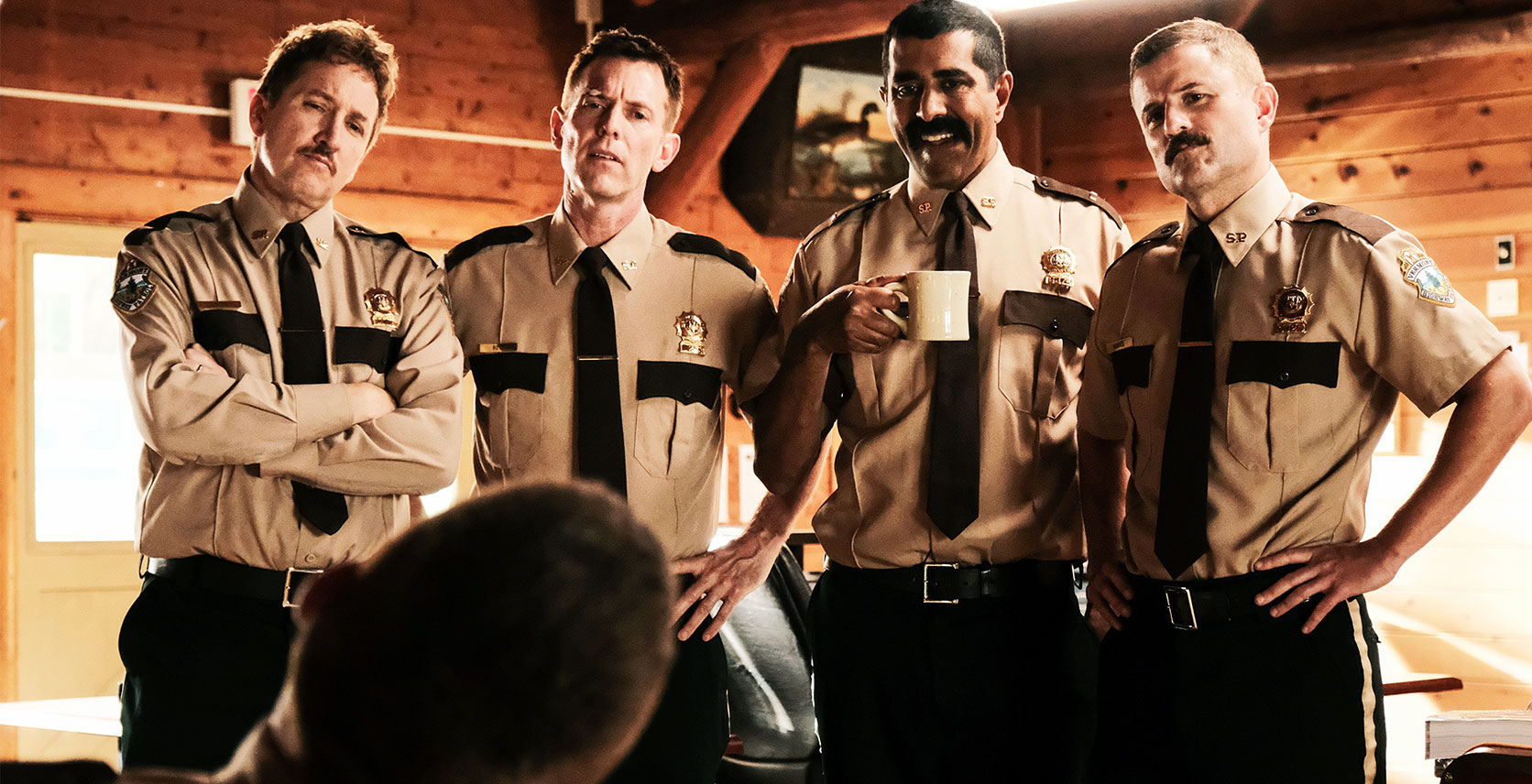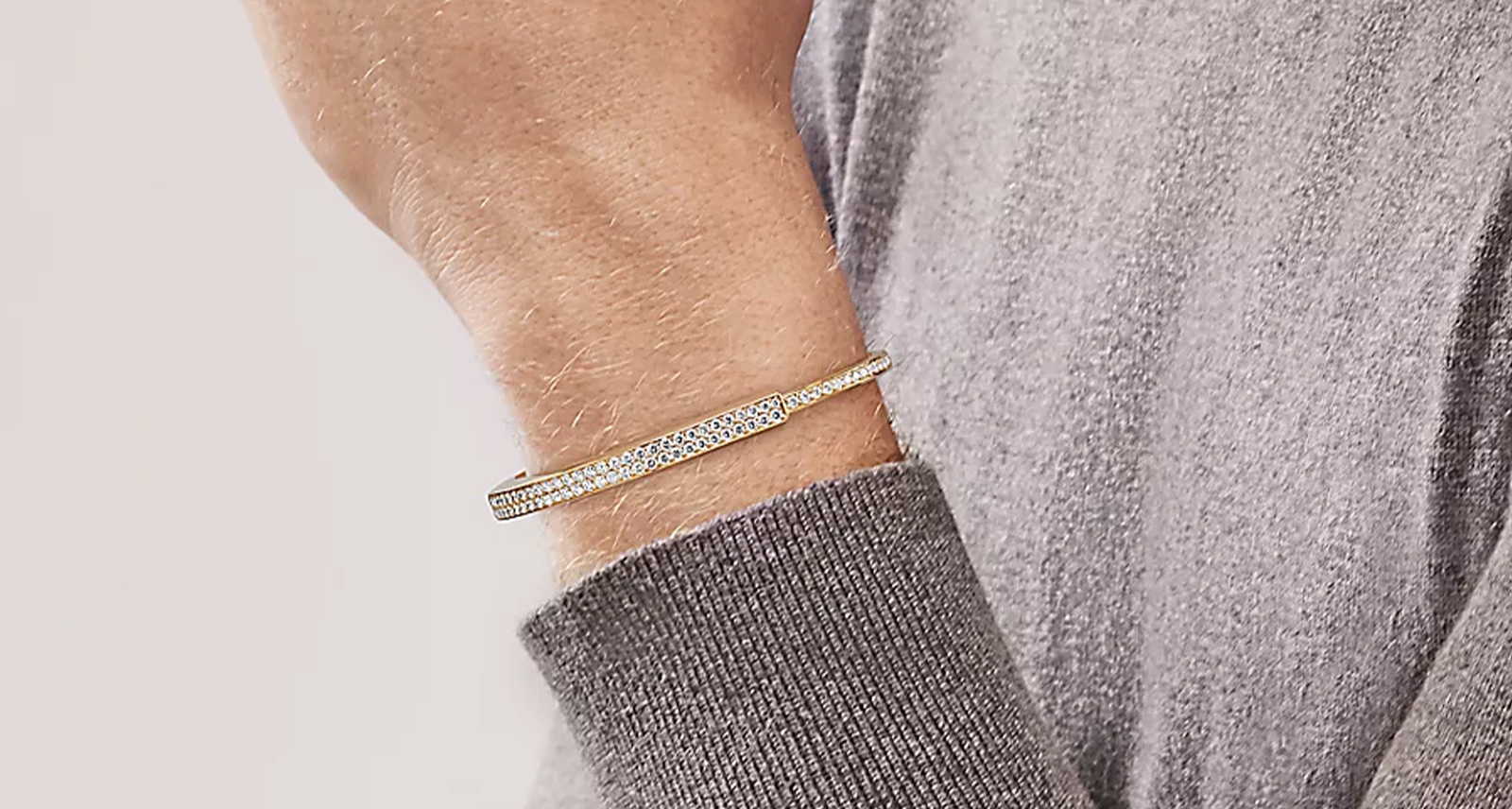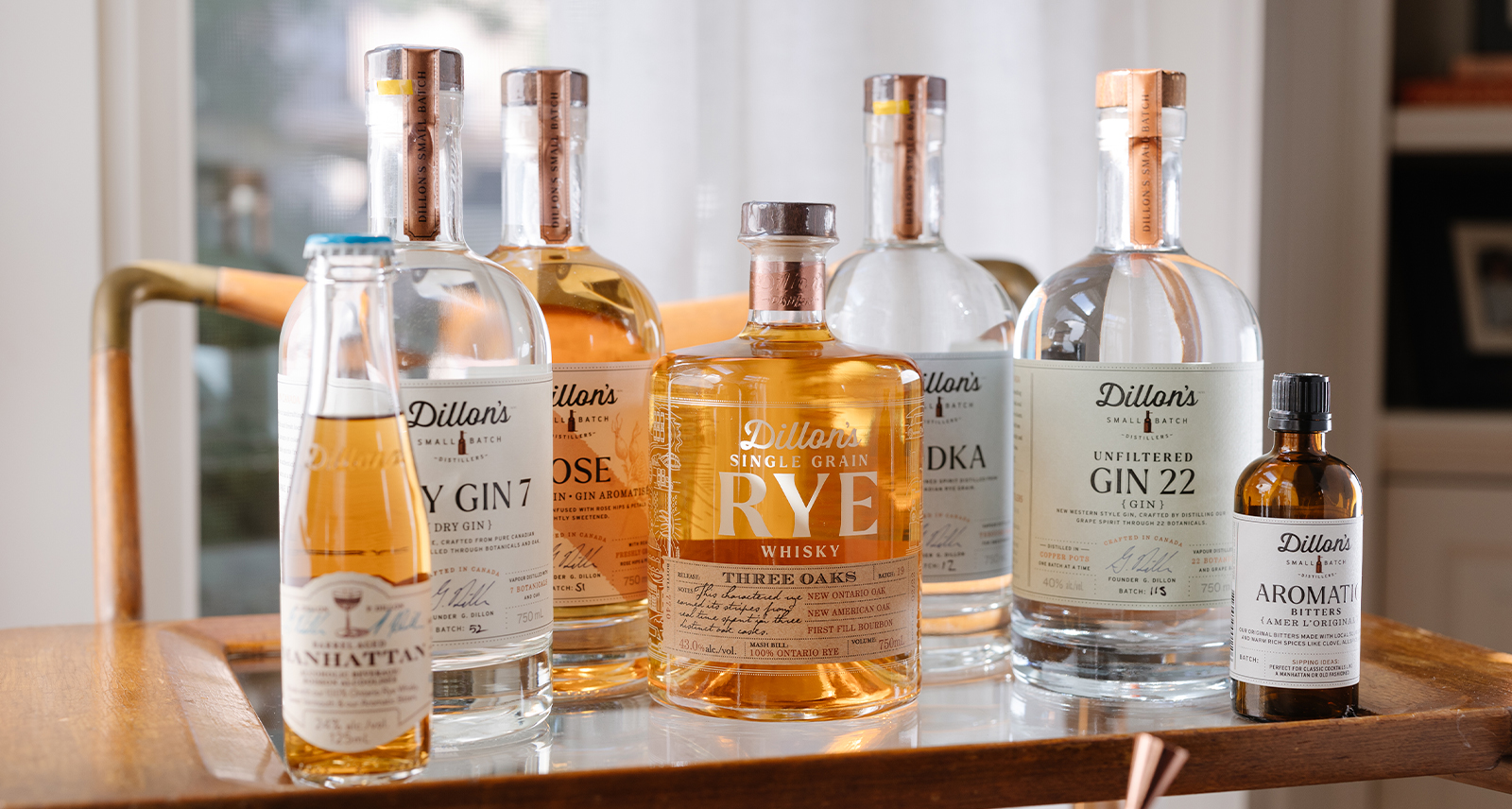Super Troopers 2’s Jay Chandrasekhar on Writing High, Canadian Stereotypes, and How Superhero Movies Killed Stoner Comedies
There is perhaps no better time to watch Super Troopers 2 than right meow. It’s summer (prime dumb stoner comedy season), national marijuana legalization is on the horizon, and Canada-U.S. relations are looking mighty shaky. (Well, not 1812 shaky, but still.) Fittingly, the sequel to Broken Lizard’s bro-cult classic sees every pothead’s favourite Vermont highway patrol back in action, seizing a French Canadian town after it’s discovered to actually be on American soil. If you were too baked to make it off the couch to see it in theatres, it’s all good — the movie was just released on DVD, Blu-ray, and digital download. Great Tim Hortons’ ghost! Kick back and watch this thing with a litre o’ cola.
Jay Chandrasekhar, one of the (fried) brains behind the Super Troopers franchise, sat down with us to chat about writing high, the death of the frat-boy flick, and the prospects of a Super Troopers 3. Unfortunately, he didn’t have time for a maple syrup chugging competition.
Why did you guys decide to do the Super Troopers sequel so many years later?
Ultimately, when we walk around we get stopped all the time about when are we going to make a sequel. And we always had dreams of being the American Monty Python, and they made a lot of different movies, so we wanted to do that, too. And we did! There was also a little bit of Fox had the rights to it and there was some wrangling over who was going to pay for it and finally we just decided to go for it. So we started writing and once we started writing we fell right back into it.
Did you have any help with finding inspiration when you were writing jokes?
You mean did we smoke grass?
Yes, exactly.
Yeah, we did. Of course we did. I mean, we wanted to make sure that we followed the same mental creative path that we did on the first one. When we wrote that first one, we were basically smoking grass every day. So we had a lot of jokes in that movie that came from riffs. But just to be super clear: we only do that when we’re in a joke writing phase. There’s a section of script writing that’s structural and about the story, that we’re sober for. So we wrote this story sober, and then smoked a little grass and wrote the jokes.
Was it hard to get back into that mental creative path so many years later?
The hardest part of making a movie is writing the characters because they have to totally all work together. In this case, they were already established. This was, relatively speaking, an easier movie to write. We wrote 37 drafts of it. We had issues of how to start it — that was sort of a big question. But aside from that, having done all the character work before made it easier.

How did the sequel’s Canadian angle come about?
Well, the first movie takes place on the Vermont-Canadian border anyway, so it was sort of a natural spot for it. But we read a story a little after 9/11; America and Canada reassessed their border because some of the markers were in the wrong place. They were in the wrong place by like 20 yards or whatever. But we thought, What if it was an entire town? That’d be kind of a funny thing, for a French Canadian town to have to be turned over. In particular because I’ve spent a lot of time up in Montreal and, you know, the French Canadians, understandably, are a little bit prickly about their language and culture. They’re a unique group of people, who I think would object mightily to being made American.
Do you have any favourite Canadian stereotypes?
[Laughs.] Well, Hollywood typically makes the Canadians incredibly friendly, “gee-wiz,” “oh, sorry,” and all that. We wanted to make “Canadians after dark” — the after-midnight Canadians. The ones you see on the streets of Vancouver, who are kind of out brawling a little, and hockey fans — those kinds of Canadians. We tried to go in a different direction that I hope Canadians would appreciate.
What was it like crowdsourcing this movie?
Fox told us we had to raise the money, so we thought, Well, let’s see if we can crowdsource a little bit of it. We put a target of $2 million on it and apparently we had a lot of fans who wanted to see this filml because within 24 hours we had that 2 million bucks! And 30 days later, 55, 000 people had given us money and it was at $4.6 million.
Did the fact that fans paid for the film put any pressure on you to make it extra good?
Well, the honest truth about that first film is that it shows up on lists of that generation’s favourite comedy films. It happens to be on that list of films like Anchorman, and some of those other films, like Borat or whatever. The pressure is built in; if you’re going to make a sequel, of course it’s going to be compared to the first one. The goal wasn’t to make a better film; the goal was to make another one. But if you kept the work ethic up, you kept the method of how it was written at the same level, then we still felt very confident that we could write the same types of jokes.
It’s a gamble — movie making is a big, high-stakes public gamble. When you succeed, it’s very satisfying because it’s in the newspapers, TV, and radio, and everyone’s happy. But when you fail, it comes the same way. It’s brutal and it’s public and it’s ugly, but then somebody else comes out with a movie and everybody moves on.
Why do you think those types of comedic, college-y films from that era — like Super Troopers and American Pie — aren’t made as much these days?
Well, the answer is, these major corporations bought the American Film Company and they said, “Oh, we’ll have a fun little media piece.” And then Iron Man came out and it made $250 million or whatever it was, and they thought, “Oh, we can actually make real money on this.” They thought, “What’s the way we can make the most money all the time? Well, these superhero movies seem to be what everybody cares about, so let’s just make those.”
It’s not that they don’t believe movies like American Pie won’t make profit, it’s just that they can only make a certain amount of profit. You can make it for $20 million and get $100 million, and they’re like, “Yeah, that’s not enough.” So, the entire film business has been kind of skewed and frankly fucked up by these superhero movies. By the way, Marvel is making great work. There’s a reason people are going; these folks are good at making these movies. As soon as that stops, the real movie business will come back again.
Seeing as it’s an older film, what was the response been like from the younger generation?
Turns out that the original film has been passed up and down. A lot of people showed their little brothers and sisters. We had a big reaction from the gaming community and the stoner community, and that tends to be the younger crowd. You can’t really make a movie work without that younger crowd, and the Friday it opened we were the number one movie in America.
Which person, dead or alive, would you sesh with today?
Any person dead or alive… Hmm, I guess it would be Abe Lincoln.
You think he would be a stoner?
A lot of those original Americans were. George Washington grew hemp and they say he may have also smoked the female version of the plant. Apparently, Jefferson did too. These guys were farmers!
What do you think about Canada being close to legalizing weed?
I think only good things can happen, particularly to the comedy business. I think there will be a good future for comedy films.
Before we finish up, are there any hopes for a Super Troopers 3?
We’re writing it! So it won’t be a 17 year wait.










